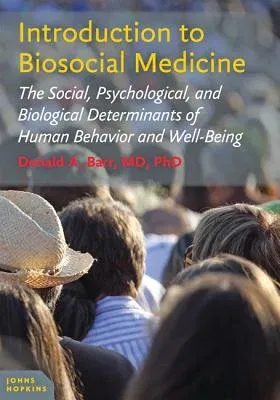Donald A Barr
(Author)Introduction to Biosocial Medicine: The Social, Psychological, and Biological Determinants of Human Behavior and Well-BeingPaperback, 15 January 2016

Qty
1
Turbo
Ships in 2 - 3 days
In Stock
Free Delivery
Cash on Delivery
15 Days
Free Returns
Secure Checkout

Print Length
216 pages
Language
English
Publisher
Johns Hopkins University Press
Date Published
15 Jan 2016
ISBN-10
1421418606
ISBN-13
9781421418605
Description
Product Details
Author:
Book Format:
Paperback
Country of Origin:
US
Date Published:
15 January 2016
Dimensions:
25.4 x
17.53 x
1.78 cm
ISBN-10:
1421418606
ISBN-13:
9781421418605
Language:
English
Location:
Baltimore
Pages:
216
Publisher:
Weight:
589.67 gm